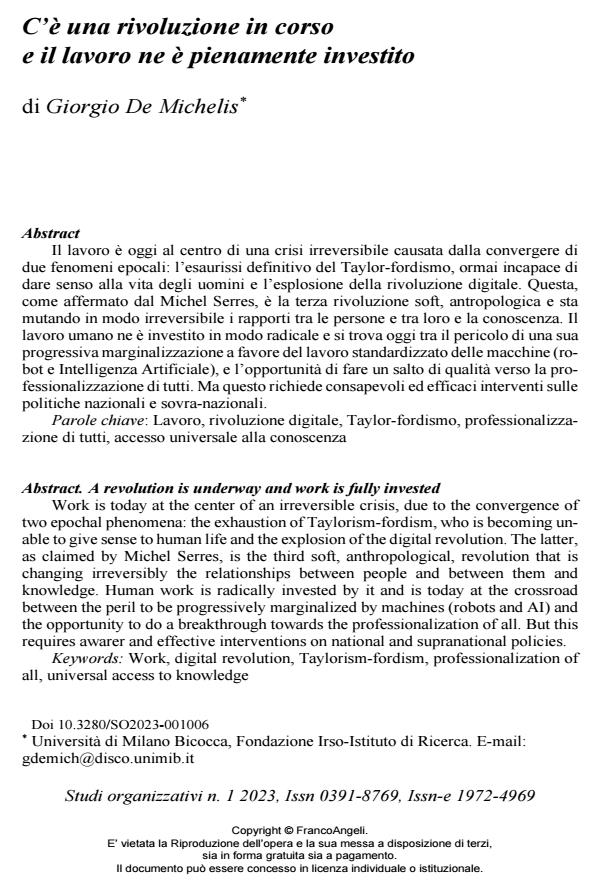A revolution is underway and work is fully invested
Journal title STUDI ORGANIZZATIVI
Author/s Giorgio De Michelis
Publishing Year 2023 Issue 2023/1
Language Italian Pages 38 P. 120-157 File size 313 KB
DOI 10.3280/SO2023-001006
DOI is like a bar code for intellectual property: to have more infomation
click here
Below, you can see the article first page
If you want to buy this article in PDF format, you can do it, following the instructions to buy download credits

FrancoAngeli is member of Publishers International Linking Association, Inc (PILA), a not-for-profit association which run the CrossRef service enabling links to and from online scholarly content.
Work is today at the center of an irreversible crisis, due to the convergence of two epochal phenomena: the exhaustion of Taylorism-fordism, who is becoming unable to give sense to human life and the explosion of the digital revolution. The latter, as claimed by Michel Serres, is the third soft, anthropological, revolution that is changing irreversibly the relationships between people and between them and knowledge. Human work is radically invested by it and is today at the cross-road between the peril to be progressively marginalized by machines (robots and AI) and the opportunity to do a breakthrough towards the professionalization of all. But this requires awarer and effective interventions on national and suprana-tional policies.
Keywords: Work, digital revolution, Taylorism-fordism, professionalization of all, universal access to knowledge
Giorgio De Michelis, C’è una rivoluzione in corso e il lavoro ne è pienamente investito in "STUDI ORGANIZZATIVI " 1/2023, pp 120-157, DOI: 10.3280/SO2023-001006